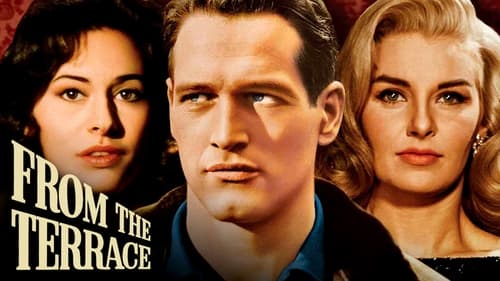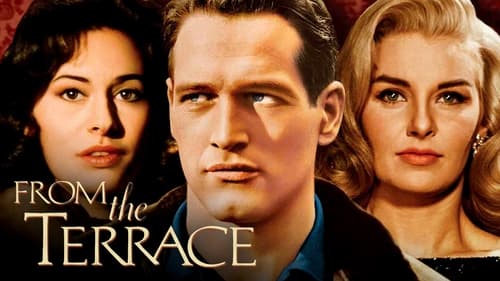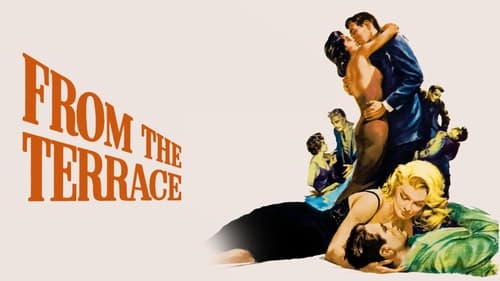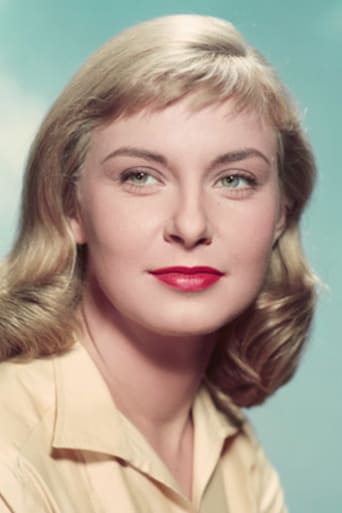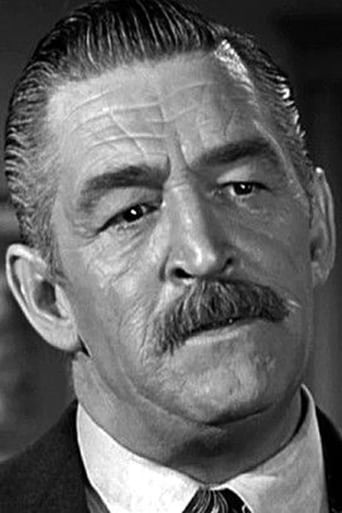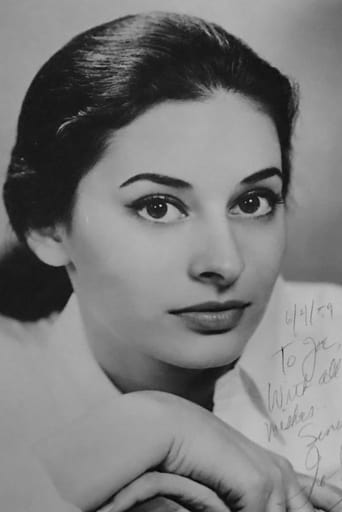Stometer
Save your money for something good and enjoyable
Platicsco
Good story, Not enough for a whole film
Sameer Callahan
It really made me laugh, but for some moments I was tearing up because I could relate so much.
gavin6942
An ambitious young executive (Paul Newman) chooses a loveless marriage and an unfulfilling personal life in exchange for a successful Wall Street career.What a strange yet apt story of generational rejection, and sons becoming their fathers. We have Paul Newman's character striking out on his own against the wishes of his father, and then he slowly begins to make the same choices -- good or bad -- that his parents did.What is the message? Is there a message? Maybe this just says something about the importance of love rather than a life filled strictly with business. I am not sure.
Bowserb46
This is one of those movies that I can't pass up when it shows up on cable. I grew up in the 50's and 60's, so movies like this are also a bit of time travel. This time it was TCM. Saw it coming up and had to use the DVR.It is not easy to make a novel into a movie. An average novel would require eight to ten hours of movie--so a mini series is the least. A childhood to maturity novel must be a real challenge. In this case, selecting just a portion of the novel and writing a screenplay around it, in my opinion, worked nicely. Here's what I like about it.Joanne Woodward and Paul Newman. They do good work separately and extraordinary work together. Woodward is believable, especially playing a southerner (which she is not here), but also playing a member of high society in New England. Paul Newman is just a good and versatile actor. The story moves slowly, but not too slowly, and the characters have enough interest to be savored in the quiet moments. Scenes with the early 1950's cars in the forest. Elmer Bernstein's score. The scene where the Eatons meet Natalie in New York. Mary Eaton is wearing a tiara (crown?). The king and queen meeting the king's courtesan. Mary, afterward: "She calls me Mrs. Eaton. You call her Natalie, but she doesn't call you anything."Don't like. Glaring hole in the story. What happened to Eaton Steel and Martha Eaton. Big family owned business and only an alcoholic widow left, and Alfred just goes off to make airplanes? Clearly Samuel Eaton was a hands on manager. Did a middle manager pop in on Mrs. Eaton and say, "I'll take care of the company for you. Don't you worry. Just get a board resolution appointing me as CEO." Or did Alfred shut down the plant in his father's honor and to spite the striking union, with his mother just living off accumulated wealth?And I wonder. Compare the last half of this movie with the AMC TV series "Mad Men", which starts out set at about the same time that this movie is set. Imagine MacHardie coming in to the Sterling Cooper conference room. Compare the morals and mores of Terrace with those of Mad Men. Considering that they were written in times 40 years apart, they fit surprisingly well, don't they?
Dalbert Pringle
Over these many years I have been told, time & again, about what a really great actor Paul Newman was in his heyday.Well, I have now seen Newman in 6 films that all came from the first decade of his acting career, and, let me tell you, I am not at all impressed. In fact, I'd actually go so far as to say that Newman was one of most over-rated and disappointing, big-name actors from that particular era, bar none.Set in the year 1946, From The Terrace was yet another star-vehicle of Newman's where I strongly felt that, at 35, he was clearly too old for his part. This time around he played a young soldier returning to his Philadelphia home after the war.The very minute Newman's character (a spoilt, tormented rich kid named Alfred Eaton) sets foot inside the door of his home the story immediately accelerates into a most tedious and predictable soap opera of non-stop bickering, jealousy and resentment, with a generous dash of infidelity thrown into the mix for good measure.Everybody in this story seems to either have an axe to grind, or be out for blood, or at one another's throat, ceaselessly.I, for one, found this 1960 film (with its plodding 145-minute running time) to be a tiresome ordeal which went far beyond anything even reasonably tolerable.Paul Newman, or not, I would never, ever recommend this bitchy, backstabbing bull to anyone.
MARIO GAUCI
This is another film which, though a staple on Italian TV over the years, I somehow never bothered with until now (obviously included in my Paul Newman tribute) – mainly because it’s a glorified soap opera of a kind (accentuated by garish color and the Widescreen format) that was prevalent in Hollywood for about a decade, beginning from the mid-1950s.It’s based on a John O’Hara best-seller which, if the trailer is to be believed, was a “sensation” when it emerged; its impact, however, has been heavily diluted in the screen adaptation – not to mention by the passage of time since the film’s release! Still, the result is reasonably entertaining (often unintentionally so in view of the ongoing histrionics) and, thankfully, its hefty 144-minute duration isn’t an excessive burden. Besides, no expense has been spared with respect to production values (director Robson, screenwriter Ernest Lehman – both of whom would memorably reteam with Newman on the delightful Hitchcock pastiche THE PRIZE [1963; still bafflingly M.I.A. on DVD], cinematographer Leo Tover and composer Elmer Bernstein).On the other hand, casting is variable yet surprisingly adequate – this was Newman’s third teaming with wife Joanne Woodward: interestingly, she plays an unsympathetic role (whereas he’s typically brooding), so that the couple’s initially blissful relationship (compromised by his ambitious drive and her own faithlessness with ex-beau Patrick O’Neal) deteriorates and sends Newman into the arms of decent girl Ina Balin…all of which leads to an idealistic ending in which the disillusioned hero gives up his career in favor of true love. Myrna Loy, then, appears briefly at the start in the role of Newman’s perennially soused and whorish(!) mother; ditto Leon Ames as his steel-mill owner father (which Newman abandons after the old man’s death) – fixated on his other, dead son!; Felix Aylmer is an elderly tycoon whose grandson the hero saved from drowning – which wins Newman a position in his firm and later, satisfied by the former’s over-achieving performance, he even goads with a partnership…but the hero turns him down flat!; and Ted de Corsia is atypically featured as Balin’s modest businessman father, whom Newman had been sent by Aylmer to check on.


